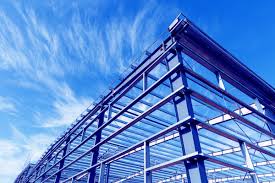Structural steel serves as the backbone of countless buildings and infrastructure projects worldwide. From skyscrapers to bridges, its strength, versatility, and durability make it a preferred choice in construction. However, the integrity of structural steel relies heavily on proper fabrication, handling, and installation. This is where comprehensive inspections throughout the entire structural steel erection process play a pivotal role.
Structural Steel inspection plays a vital role during the erection process. Let’s understand the Significance of Structural Steel Inspections:
Structural steel inspections are not just a formality; they are critical checkpoints aimed at ensuring safety, compliance, and quality. These inspections encompass various stages of the steel erection process, from fabrication in the workshop to final placement on-site. Here’s why they are indispensable:
- Early Detection of Defects: Fabrication flaws, material defects, or inaccuracies can compromise the structural integrity of steel components. Inspections during fabrication allow for early detection and rectification of such issues, preventing potential hazards during erection.
- Quality Assurance: Structural steel undergoes rigorous quality control measures during fabrication. Inspections verify compliance with industry standards, specifications, and project requirements, guaranteeing that only high-quality components are used in construction.
- Safety Compliance: Structural steel erection involves intricate processes that demand adherence to stringent safety protocols. Inspections ensure that proper safety measures are in place, mitigating risks for workers and minimizing the likelihood of accidents or structural failures.
- Accuracy and Precision: Precise alignment, fit, and connections are paramount in structural steel erection. Inspections verify dimensional accuracy, welding quality, and bolted connections, ensuring that components are installed correctly according to engineering specifications.
- Progress Monitoring: Inspections provide stakeholders with real-time insights into the progress of steel erection. By identifying any deviations or discrepancies early on, adjustments can be made promptly, minimizing delays and cost overruns.
The Role of Inspectors in Structural Steel Erection is very important. Don’t think for one minute that your structural steel inspector needs to only be called in at the beginning and end of the process. In almost every instance of structural steel erection, the inspector should be onsite nearly every day to review the progress, inspect the process and previous day’s work, and provide insight into proceeding into a completion phase.
Certified inspectors play a crucial role in conducting thorough inspections throughout the structural steel erection process. Their expertise, attention to detail, and adherence to standards contribute to the overall success of the project. Here’s how inspectors contribute:
- Qualification and Certification: Inspectors undergo specialized training and certification to ensure proficiency in evaluating structural steel components. Their expertise enables them to identify potential issues and deviations from standards effectively.
- Compliance Assurance: Inspectors verify compliance with relevant codes, regulations, and project specifications. They meticulously examine welds, connections, and structural elements to confirm that they meet required standards.
- Documentation and Reporting: Inspectors maintain detailed records of inspections, documenting findings, observations, and corrective actions taken. Comprehensive reports provide valuable documentation for regulatory compliance and future reference.
- Collaboration with Stakeholders: Inspectors collaborate closely with project managers, engineers, and contractors to address any concerns or discrepancies promptly. Their proactive approach fosters teamwork and ensures that issues are resolved efficiently.
- Continuous Improvement: Inspectors contribute to the continuous improvement of processes and procedures by providing feedback and recommendations based on their observations. Their insights help optimize efficiency, enhance quality, and mitigate risks in future projects.





